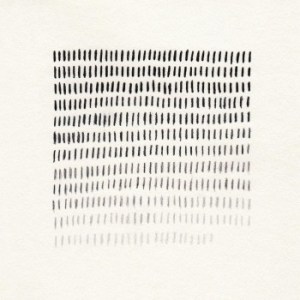By John Hardaker
 When I reviewed Melbourne guitarist/composer Tim Willis’ 2012 release Keep Your Chin Up, I referred to his music as ‘jazz for the Miasma Age’. It is not jazz or post-rock or contemporary classical music or minimalism and yet is all of the above. Beautifully.
When I reviewed Melbourne guitarist/composer Tim Willis’ 2012 release Keep Your Chin Up, I referred to his music as ‘jazz for the Miasma Age’. It is not jazz or post-rock or contemporary classical music or minimalism and yet is all of the above. Beautifully.
Keep Your Chin Up, and its predecessor, The End – named for the collective Willis performs and records with – were both remarkable collections of music that springs from a mind equally free and grounded: the melodic invention is playful, almost colourful, yet the arrangements are tight as skin.
Willis’ new album – called Night and Day for the six-part suite that dominates it – has The End expanded from a five-piece rock-and-roll band to an eight-piece mini-orchestra, adding Dan Sheehan on piano, Brae Grimes on trumpet and a second electric guitarist, Dan Mamrot.
Altoist Jack Beeche and bassist Gareth Hill are carried over from the earlier group, with drummer Sam Young and tenor Kieran Hensey brought in, new.
The Night and Day suite was written for the PBS106.7 Young Elder of Jazz Commission and premiered at the 2013 Melbourne International Jazz Festival. I can imagine the mix of reactions among the festival goers at Willis’ uncompromising and entirely original approach.
Yet, despite the expanded palette of harmonies and timbres afforded by the larger band, Willis keeps a firm hand on the tiller throughout – his characteristic minimalistic and repetitive touches are all here, as well as the timbral and melodic surprises which playfully dent and scratch the sheen of his music.
The suite begins with ‘Night’ and moves through six degrees to ‘Day’. Willis’ night, far from being a dead dark empty void, is alive with rhythm and restless energy – of carnal human fun? of animals skittering on the hunt? of water and wind rattling in the moonlight? This night is relentless and propulsive, running on hammered eighth-notes, unstoppable as sex.
‘Cold’ kills the night-life off with long repeated grey chords only answered with patches of silence. ‘Dark’s guitars are reminiscent of the Black Sabbath flavours of the earlier End albums; Willis’ solo here reminding me how much I enjoy listening to composers when they improvise – like Frank Zappa or Gil Evans, Willis is shaping his solo as he shapes his compositions.
‘Dark’ moves into a stabbing sixteenth-note texture that has a cry inside – the Dark here is not just environmental but in our sad hearts.
‘Dawn’ pushes a brighter tonality on and on, yet it feels more of hoping against hope, than one of hope. All of this music is deeply affecting, and has a sorrow either inside it or halo’ing it – Willis suggests and expresses the complexity of our feelings as humans; happiness is built on sadness, sorrow is almost a natural state.
The clipped syncopations of ‘Thaw’ push against that sorrow, sparring from all sides. The guitars have a King Crimson insistence and dark edge. Hill’s bass solo preludes a complex series of sound-pictures in the coda: morning sunlight on rocks, dripping icicles, wet branches.
When ‘Day’ comes, it is with a sense of joy over a heavy rock snare – Willis plays games with timbre and harmony across the final suite track: whether under horn solos, blazing ensemble sections or limpid sparse ghost-harmonies. ‘Day’ is the mirror of ‘Night’ but only a slightly more polished mirror. Nature continues unrelenting, whether under the gibbous moon or the white sun.
Night and Day is rounded out by two Willis originals – as equally fascinating in their shape and ideas as the suite – ‘Alone’ and ‘A Better Place’.
It has taken me more than half the year to find the album that is easily the best thing I have heard in 2015. For invention and a truly clear-eyed, uncompromised vision, Night and Day gets the guernsey. It is my only sad that my words can barely get across what a wonderful musical and poetic experience this album is. I guess you will just have to listen to it for yourself.
Tim Willis and The End will be touring this music around Australia towards the end of 2015.


